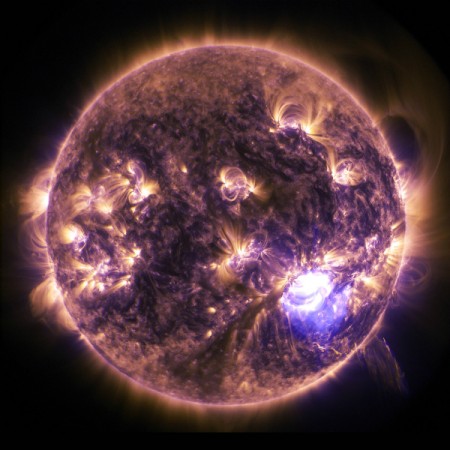Friday, February 9, 2018
Climate fraudsters meet the cooling sun
Remember the 1989 science fiction novel The Dying Sun by Gary Blackwood, where people were forced to migrate from the US to Mexico because of the freezing weather triggered by cooling down of the Sun? Scientists are now afraid that such a situation can become a reality in the near future. The question that now arises is, are we at all prepared for another ice age?
A study by the University of California San Diego has claimed that by 2050, the Sun is expected to become cool. You might think "what's the big deal," but remember that this means the solar activities that create the heat of the Sun to sustain life on Earth may diminish. And the last time it happened was in the 17th Century, when the Thames River froze. Scientists call this the "Maunder Minimum".
Physicist Dan Lubin at the university and his team studied the past event and concluded that were are in for a worse case. The Sun is expected to get much dimmer than last time and, in scientific terms, it is a "grand minimum" -- a time period in the 11-year solar cycle when the solar activities are at the lowest point.
According to the study, titled Ultraviolet Flux Decrease Under a Grand Minimum from IUE Short-wavelength Observation of Solar Analogs and published in the journal Astrophysical Journal Letters, this grand minimum will be 7 percent cooler than such periods from the past.
Scientists also said that the Sun might have another cooling period in a decade.
However, predicting a solar minimum or maximum is a challenge to scientists because of the non-linear characteristic of solar activities that happens every day. During a minimum cycle, though solar cycles still occur, the intensity is very low, while during a maximum cycle, solar flares go up and sun spews out billion-ton clouds of electrified gas into space. These two extremes can bring about some major global and regional climate changes.
Are you now wondering what effect grand minimum will have on Earth? Lubin said such cold spells thin out the stratospheric ozone layer first, which will affect wind and weather patterns. He also warned that not all regions will experience a dip in temperature. Rather, in some places, the mercury will rise.
Now the question that arises is, will this event trigger the upcoming ice age everyone is talking about?
Researchers at the Northumbria University have claimed that a mini ice age will start by 2021 and is expected to reduce the effect of global warming, but not stop it.
Labels:
Climate Fraud,
Nature,
science
Subscribe to:
Post Comments (Atom)





No comments:
Post a Comment